True Story Of Billionaire Ted's 'Wrasslin' Warroom'
Everything you need to know about Billionaire Ted's 'Wrasslin' Warroom'
It takes a lot for WWE to explicitly acknowledge an existing competitor on their airwaves. Though in the early stages of the Monday Night Wars, WCW and their red hot programme Monday Nitro clearly qualified as "a lot", seeing as they presented arguably a fresher, hipper alternative to Monday Night Raw.
The early success of Nitro, along with relentless prodding from Eric Bischoff, showed the previously unchallenged WWE that they were in a very real fight for first place. It led to Vince McMahon allocating space on his weekly programmes solely to fire back at WCW. What began as a harmless exercise in satire quickly lost its good-natured sheen, exposing a more bitter motive on the part of the WWE boss.
Throughout the autumn of 1995, WCW Nitro won more head-to-head battles than they lost against WWE Raw. It wasn't much more, but it was enough of an acquired upper hand to where those who thought Eric Bischoff had no shot at beating the omnipotent WWE began to eat some of their words.
There were many reasons why Nitro drew such interest, even against an established USA Network wrestling franchise. For one thing, the main event scene was filled with household names, quite a few of whom had headlined in WWE to some degree over the prior few years. Hulk Hogan and Randy Savage may have both been longer in the tooth, but each possessed a higher Q rating than the younger Diesel and Shawn Michaels.
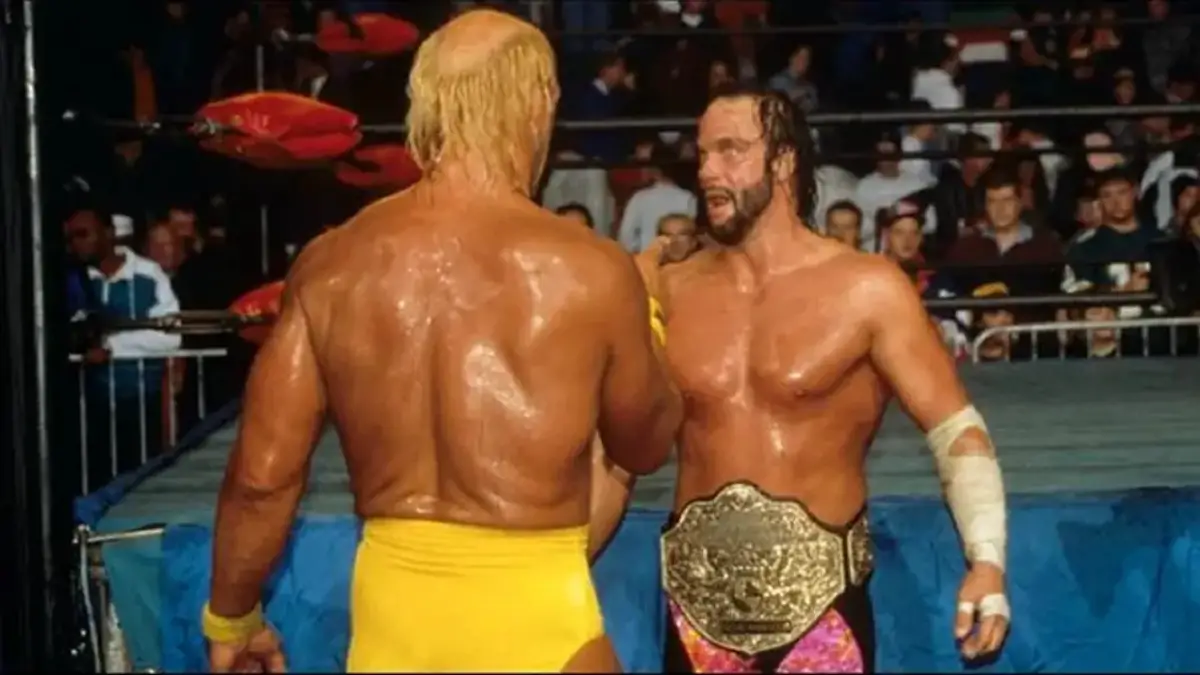
Another enticing aspect of Nitro was the fact that it felt like an event. Almost every single broadcast was live, whereas Raw only ran live once a month. The rest of their month's worth of one-hour broadcasts were taped the same night as the live show, meaning some episodes of Raw were airing three weeks after they'd been filmed. There is no room for spontaneity with that kind of broadcast model and a home viewer can tell the difference between genuine audience energy and a droning crowd sweetener that can't exactly disguise the sight of 1500 fans sitting on their hands while fighting slumber.
There was also the fact that Nitro, in an attempt to be different from Vince's show, was more keen on throwing out pay-per-view level matches on free TV, whereas Raw still adhered to a more minimalist formula.
Worse for WWE, somebody in WCW took sadistic pleasure in pointing out the archaic nature of the competition’s programming. Eric Bischoff was WCW's Senior Vice President, but he was also Nitro's lead announcer, mirroring Vince McMahon's duties on the opposition show. From his commentary perch, Bischoff pulled back the curtain on the taped episodes of Raw, giving away results for those weeks where the matches were taped. The most oft-cited example came from the second-ever episode of Nitro, in which Bischoff crowed about how the viewer didn't need to flip on Raw, seeing as Shawn Michaels was going to beat Psycho Sid with a superkick that, in his words, "...couldn't earn a green belt at a local YMCA."
In times when only a tiny fraction of the viewership was wired to the internet, spoilers like this weren't so readily available. To less savvy viewers, Bischoff's soon-to-be-regular practice of revealing Raw's results for the night highlighted the stark difference between vivid, unpredictable Nitro and colourless, formulaic Raw.
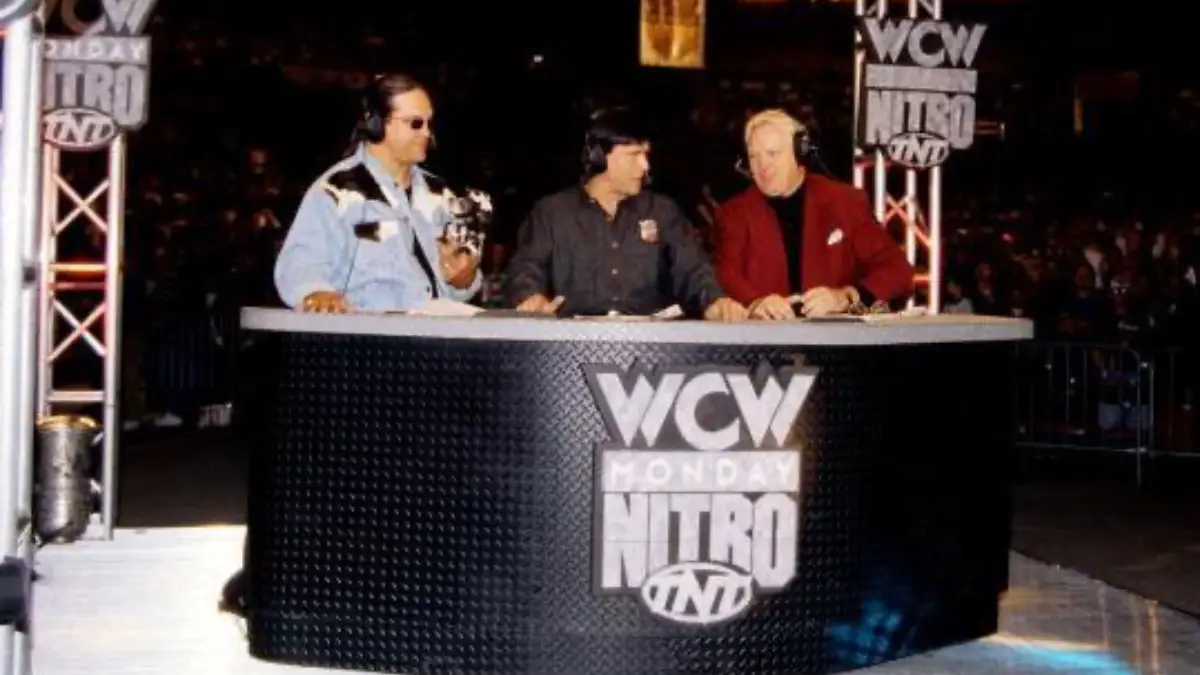
Nitro's regular ratings victories, and Bischoff's gleeful spotlighting of Raw's shortcomings, had begun to wear on McMahon and WWE. By the end of 1995, McMahon and company got to work producing their rebuttal to those repeated jabs. Not by working to improve the issues that Bischoff ridiculed, or by trying to outdo the Nitro product. Rather, with parody. Billionaire Ted's Wrasslin' Warroom was born.
The Warroom began as a simple ad campaign, premiering during the Raw that aired on New Year's Night 1996. While Hulk Hogan battled WCW World Heavyweight Champion Ric Flair over on TNT, WWE countered by lampooning the age of the stars on the other channel.
The skit featured a Turner stand-in (Billionaire Ted, as it were) sitting at the head of a conference table, surrounded by various suits, one of whom was an unnamed Vince Russo making one of his first on-camera appearances for WWE. There was also a dishevelled-looking Hulk Hogan impostor, and somebody dressed up like Randy Savage, this duo known respectively as The Huckster and The Nacho Man. There was even a Mean Gene analogue, dubbed "Scheme Gene", as a send-up of Okerlund's shameless teases for the WCW Hotline that he owned and operated.
In the ad, Billionaire Ted presided over a meeting in which the executives tried to pitch new manoeuvres for Huckster and Nacho to add to their repertoires. These included devastating-looking WWE finishers like Diesel's Jackknife Powerbomb and Ahmed Johnson's Pearl River Plunge.
The two decrepit-looking wrestlers repeatedly baulked at doing any manoeuvre that required peak strength and conditioning, with Huckster noting that at his age, his feet no longer left the ground. When Billionaire Ted inquired as to what they *could* do, the not-so-Mega Powers went into their outdated posing routines, before Huckster clutched his chest and crumpled to the floor. The concluding voiceover stated, "You can't teach an old dog new tricks," before adding, "The new WWF generation - on top of the hill; not over it."
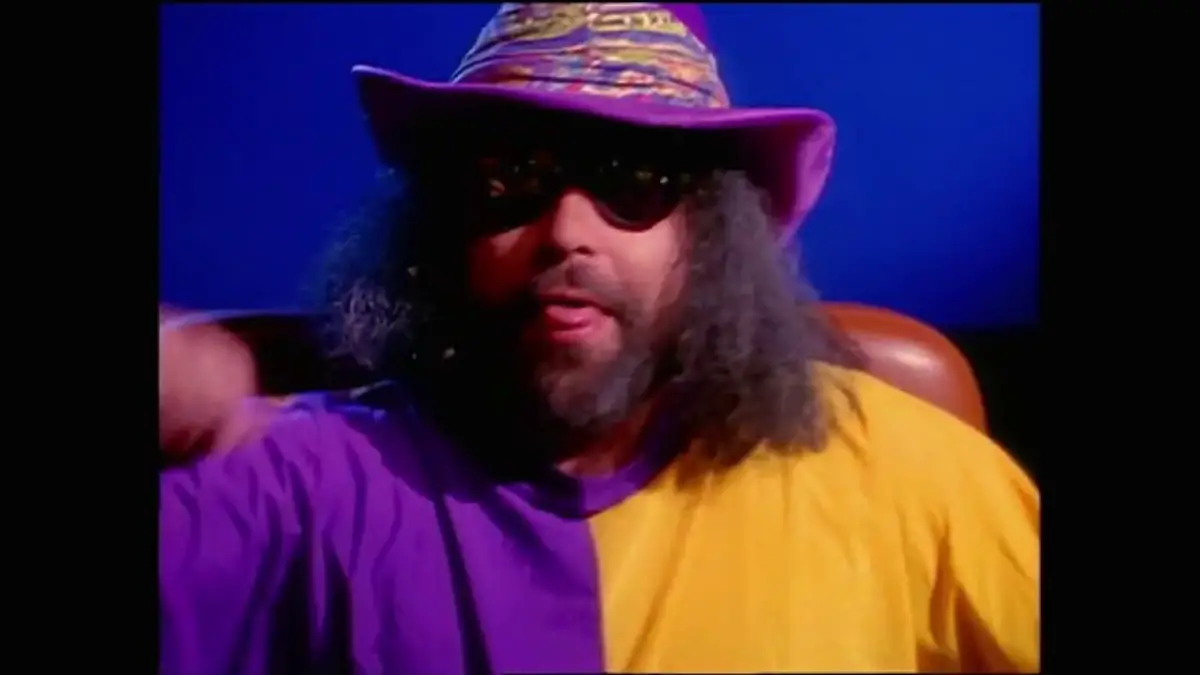
It wasn't the most scathing of satires, but the message was pretty simple: we have younger, fresher stars that represent the future of wrestling, while WCW trots out old geezers with nothing new to say. Given that Bischoff was ridiculing WWE's entire television model with spoilers week after week, and seeing as he'd just had Madusa physically trash the WWE Women's Title on his program, this was a rather light-hearted, mostly benign retort from McMahon's camp. The tone would not stay light-hearted.
Had the sole crux of Billionaire Ted's Wrasslin' Warroom been demonstrating the superiority of WWE's roster from an action and excitement standpoint, with a few ageist jibes at the competitor, it would have been fair play from McMahon and WWE. The ages of the WCW main eventers weren't going to be the lone targets of Vince's ire, however.
In the Warroom skit that aired on January 8, Billionaire Ted and company brainstormed a new catchphrase for their company. There were a few more digs at age, but the real juiciness came when Nacho Man pitched, "Where the big boys play", which was WCW's actual slogan of the day.
However, nervous "Nacho" then had second thoughts, fearing that calling attention to any "bigness" on the part of WCW wrestlers would lead to them having to test for steroids. Huckster told him not to worry - they'd never have to test for 'roids because they weren't in WWE any more, brother.
Immediately after that night's Raw, McMahon released a statement, saying in part: "The World Wrestling Federation is concerned about the health and well-being of its talent. Although on tonight's Raw program, we used satire to demonstrate a point about the WWF's steroid policy as opposed to Ted Turner's WCW, we realize that the use of steroids and other drugs of abuse is a serious issue and can pose health risks."
The statement went on to challenge Turner and WCW to adopt a drug testing policy similar to that of WWE’s, "...in the interest of the health and well-being of all the athletes under his umbrella." The WWE sent letters of similar sentiment to Turner and WCW attorney Nick Lambros. In response, Bischoff penned a letter to McMahon, calling WWE’s latest attempt at satire, "defamatory and disparaging to WCW and its wrestlers", while informing McMahon that his legal counsel was reviewing the matter.
Bischoff went on to tell McMahon that WCW had a drug testing policy in place, and closed by stating, "While we can appreciate your intent in combining the efforts of the WWF with certain facets of our programs, we are not so inclined." McMahon's response to the letter was to show freeze frames of Bischoff's writings on WWE programming.
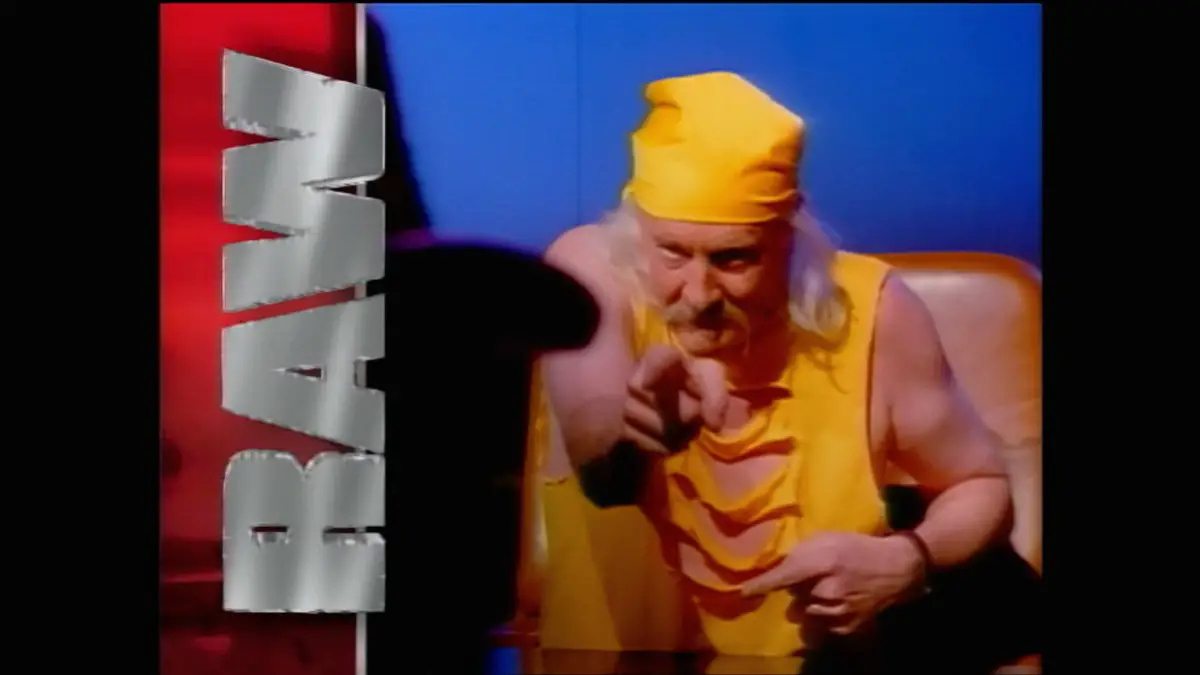
WWE did score one minor hit with the sketch - WCW briefly shelved their "where the big boys play" motto for a few weeks, perhaps to let any possible connection between "big boys" and "synthetic enhancement" fade from people's minds.
The next two weeks of Warroom parodies continued to hit at Hogan and Savage for being washed up, and at WCW for apparently not having any original ideas (instead relying on Stamford's leftovers to build their empire). In other words, pretty straightforward satirical attacks in the vein of the original skit.
Then came the sketch that aired on January 29. If the shots at Huckster and Nacho were sporting jabs, this was an aggressive knee straight to the groin, and it was aimed squarely at Ted Turner.
In this skit, Billionaire Ted held a press conference while flanked by Huckster, Nacho, and some random suits. The inquisitive media on hand asked Ted several questions about his wrestling programming, particularly why he put his wrestling show directly up against Raw when, as the owner of his networks, he could have chosen any other time slot. He was quizzed about undercutting ad rates on his bevy of wrestling shows, and was also asked point blank if he was trying to kill WWE.
For the most part, "Billionaire Ted" was evasive and a bit nervous. At the very end of the skit, he was asked what he wouldn't do to put WWE out of business. With a bit of an anxious chuckle, Ted responded that he wouldn't use his own money to do so, prompting annoyance from Huckster and Nacho. Suddenly feeling standoffish, Ted begins fumbling around his suit jacket looking for something, before yelling off-screen, "Jane, where's my lithium?!" These were references to Ted Turner's then-wife Jane Fonda, and the fact that Turner had, for a period, taken lithium as a mood stabiliser in treating his bipolar disorder.
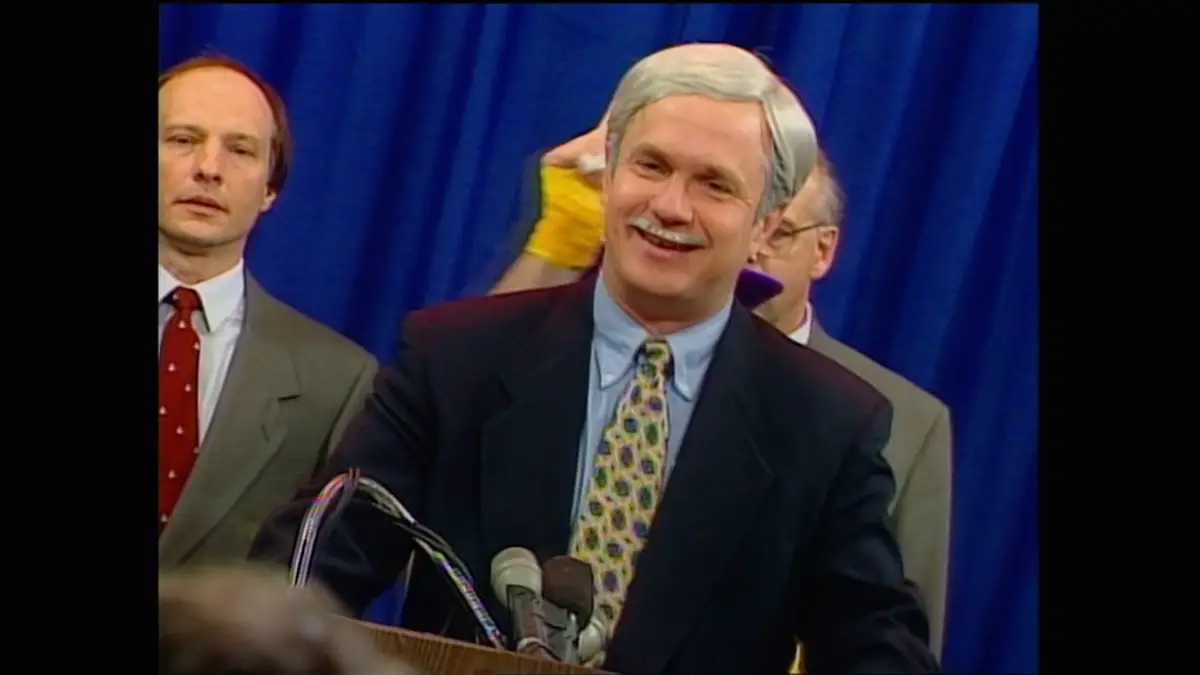
Taking a shot at Turner's mental health struggles seemed a little out of bounds for a war contested over squared circle offerings. That, and Vince alleging that Turner was trying to drive him out of business, while also alleging possible steroid use on the part of his headliners, was considered ironic in the eyes of many.
Vince wasn't done, though. He was making the war not about the on-screen products, but questioning the faith in Turner's business dealings. At the time, Turner Broadcasting was deep in merger negotiations with media group Time Warner, and Vince was attempting to sabotage it. By having Billionaire Ted say that he was not spending his own money to kill WWE, the implication was that Ted Turner was wasting his own stockholders' money to try and drive Vince and company into ruin through a targeted campaign.
McMahon went so far as to try and take out an ad in different financial magazines, questioning Turner's motives. The ad wrote, "Attention Stockholders: has Ted Turner lost 40 million dollars of your money in his personal vendetta against the World Wrestling Federation? Where are these losses reported in TBS' financial statements? Time-Warner beware!"
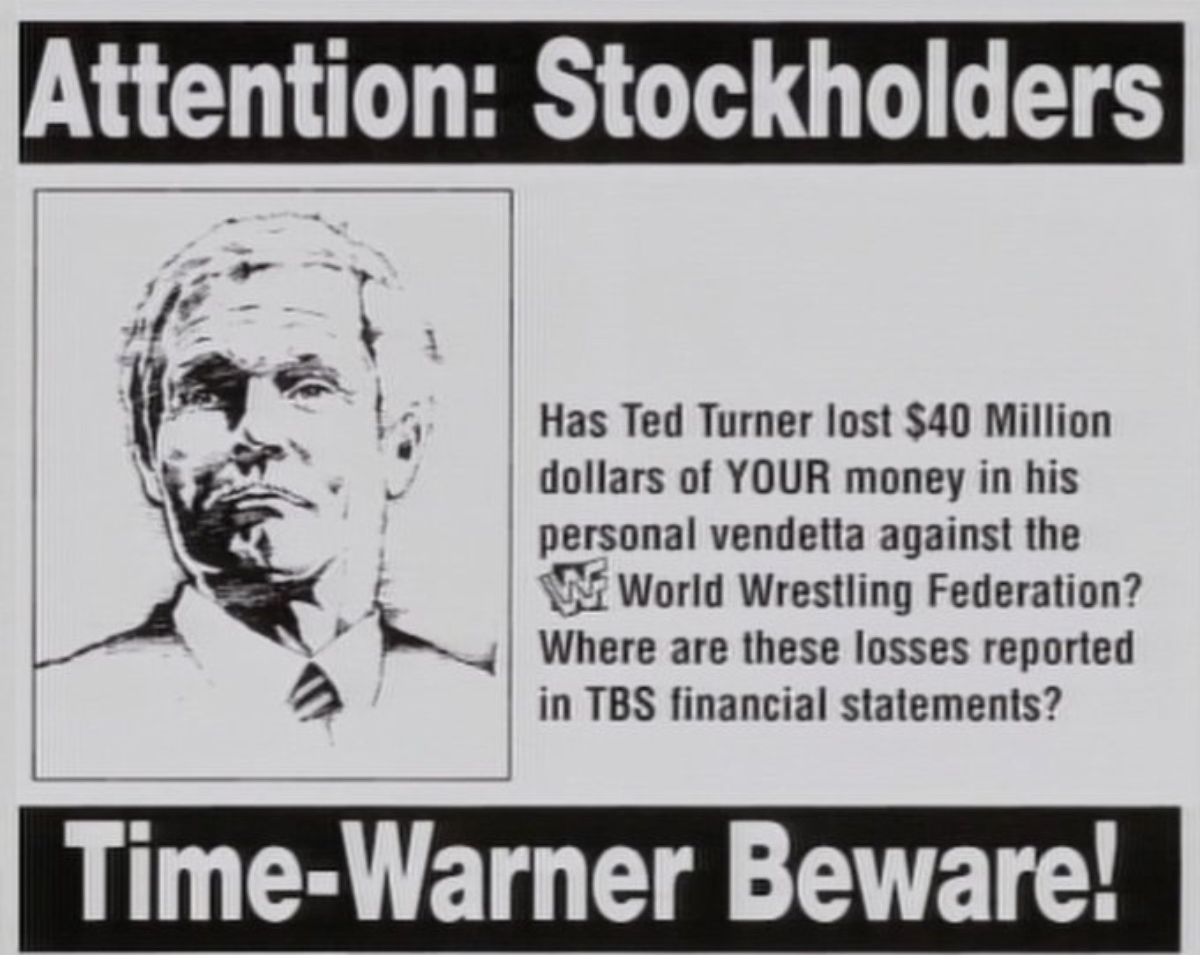
The Billionaire Ted skit that aired February 5 reflected this idea, a continuation of the press conference, wherein Billionaire Ted admits he doesn't care about wasting stockholder money on a pro wrestling vanity project.
Many financial publications refused to run the ad on grounds that it was defamatory, though the New York Times permitted a softened version for print. Nonetheless, WWE aired a freeze-frame of the ad on its programs, for their fans to see.
Turner and Time Warner officially merged in October 1996, and these digs from the WWE side really did no damage. Of course, Turner would later regret dealing with Time Warner, but that's a whole other story.
For now, however, the sketches continued through the winter months, and included parodies of the talk show Larry King Live, which alternated between taking shots at WCW creative and at Turner the businessman. There was also a Jeopardy parody in which all the answers were questionable statements made by Turner through the years.
These skits were considered a major priority. As was written in Sex, Lies, and Headlocks: "The more elaborate the skits, the more Vince became willing to stop the company's work to produce them. Employees were sent e-mails directing to drop what they were doing because extras were urgently needed in the WWF's in-house production studios."
On the March 18 skit, Billionaire Ted provided testimony before the Federal Trade Commission, regarding the Turner-Time Warner merger. At several junctures, the question-askers pointedly queried Ted about trying to put WWE out of business, at which point the sketch descended into a spoof of Jack Nicholson's famed "You Can't Handle the Truth" speech from 'A Few Good Men'.
After Ted affirmed his wish to destroy WWE, the words "To Be Continued" appeared on-screen. The image then faded to black, replaced by a message urging viewers to write to the FTC in the hopes that they can prevent Turner from gaining more power in the field of cable TV.
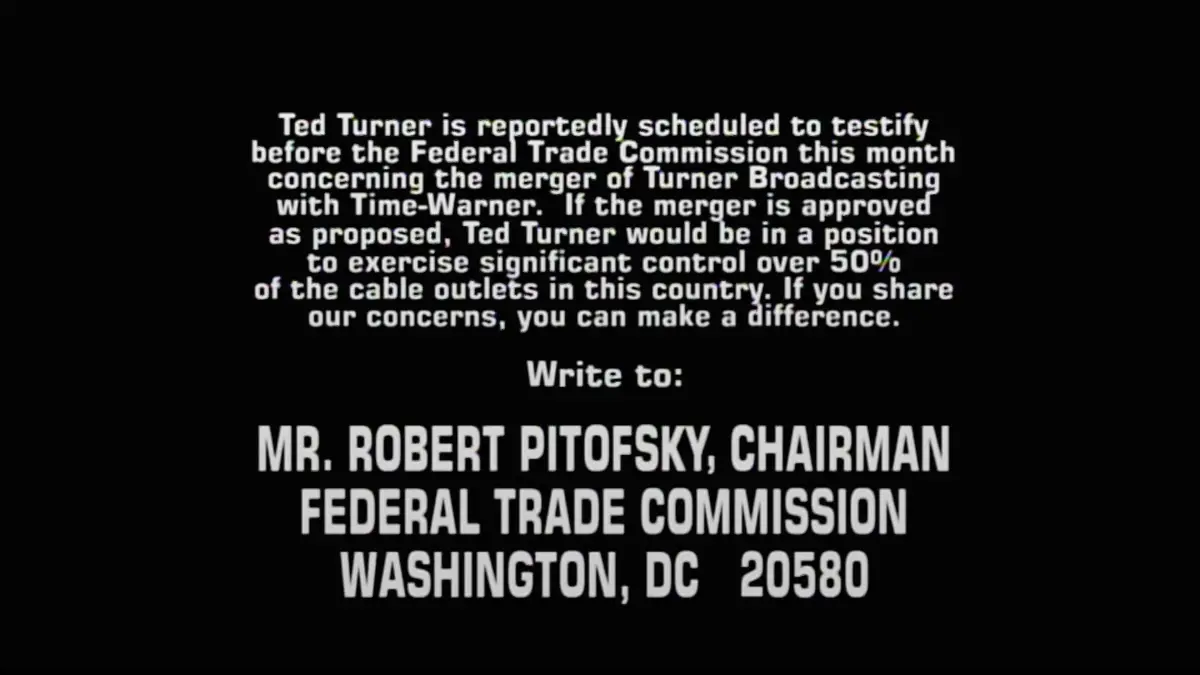
The skit may have concluded with the words "To Be Continued” but that wouldn’t be the case. USA Network President Kay Koplovitz intervened due to the increasingly hostile and malicious tone of the skits, as they'd clearly moved away from mocking their competition's product to personally attacking the man at the top. Koplovitz also understood that Turner's control over a large volume of cable outfits (which chose to broadcast USA Network) meant that doing something regrettable to draw Turner's ire would not be a good business decision. Thus, Koplovitz put an end to the Billionaire Ted skits, and demanded that all scripts for Raw were to be reviewed by an overseer going forward.
The "Few Good Men" cliffhanger would never be revisited. However, McMahon did get in one last dig at the Warroom gang, away from USA Network. During the pre-show of WrestleMania 12, a pre-taped "match" pitted Huckster against Nacho Man, with Billionaire Ted officiating. The two wrestlers quickly dropped dead from heart attacks after over-exerting themselves. Ted didn't seem to care about the duelling expirations, saying he could just buy more stars. But when a masked Federal Trade Commission rep showed up during the match, Ted himself dropped dead of a heart attack. McMahon and Jerry Lawler provided commentary for the farce, silhouetted in like an episode of Mystery Science Theater. When Ted keeled over, McMahon deadpanned, "So long, Ted."
Other than perhaps making Vince laugh a little, WWE didn't gain much from these Warroom skits. The more innocent ones didn't draw too much anger from the subjects being parodied. Bischoff claims that Turner himself, "laughed his ass off when he saw them."
Hulk Hogan, meanwhile, believes the sketches backfired, saying, "It made fans turn on WCW to see if Hulk Hogan was really pushing a walker. It made people look to see if I was really that washed up." In other words, something akin to the pro-wrestling Streisand Effect.
Reportedly, Savage was the only target that was miffed, and he lamented being portrayed as a washed-up mercenary who betrayed WWE for greener pastures.
As far as the Warroom being ineffective, Eric Bischoff wrote that WWE, "...didn't have a clear understanding of why their audience had left them, and wouldn't acknowledge the fact that we found a formula that was successful. All they had left was to make fun of us."
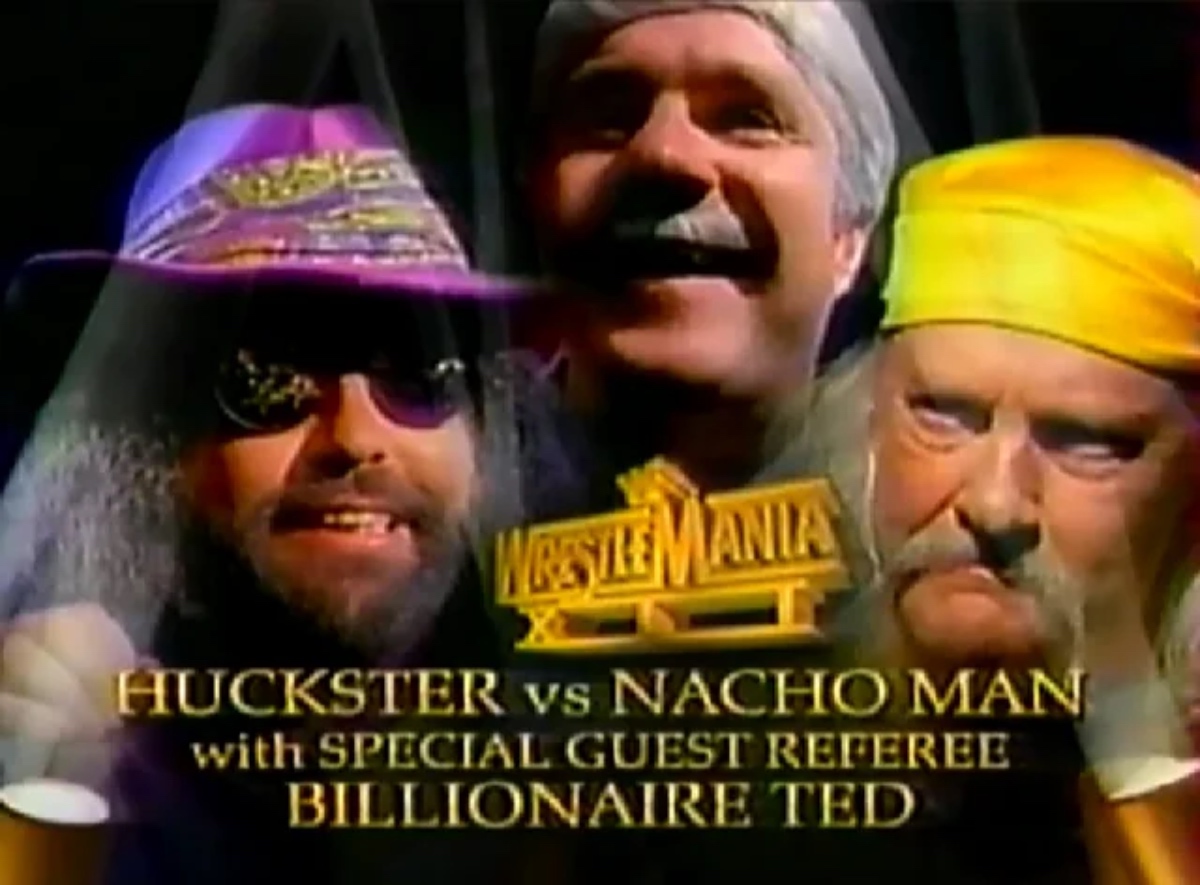
WCW themselves even got in on the act. When Scott Hall invaded Nitro that May, vaguely cast as a WWF-affiliated trespasser, he asked where Billionaire Ted, The Nacho Man, and Scheme Gene all were, ostensibly using pet names invented by a second-place team that's left resorting to childish name-calling.
Events before and after those Warroom skits aired revealed many hypocrisies of WWE taking the tactic of morally upstanding "little guy" crying foul in the face of a powerful opponent.
Billionaire Ted's Wrasslin' Warroom existed for less than three months, and really had no significant bearing on the Monday Night Wars. Yet they remain an unforgettable chapter in a historic pro wrestling conflict, simply for the fact that after years of industry dominance, a wrestling promotion that never acknowledged its competitors was finally forced to do so - and they did in about the strangest way imaginable.
